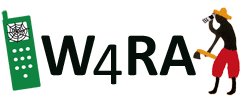The course “ICT4D in the Field” is an elective master course, given at UNIMAS for students computer science, artificial intelligence and information science of VU and UNIMAS. The lecturers are from both UNIMAS and VU.The course starts on June 7th at the UNIMAS campus with an official ceremony. The ten VU students who participate in this course will be present, as well as the UNIMAS students who will participate.
Prof. Hans Akkermans from VU will be present and will lecture this course from 7 to 14 June. Course coordinator Anna Bon and Dr. Jaap Gordijn will arrive on June 13 and take over the supervision of the students. Dr. Victor de Boer will arrive on June 27th and will be present the last week, until the final closing ceremony of the course on July 3rd.
A detailed program will be provided to you on June 7th at UNIMAS. Your lecturers at UNIMAS are Dr. Cheah Wai Shiang and Ms. Dr. Sze San Nah and others.
Course content
ICT4D addresses problems of and solutions for the “unconnected people in the world”. Currently, this is about 47 % of the world’s population, the majority of whom live in poor, remote, often rural, regions of the world. The ICT4D in the Field course has a Community Service Learning character, and gives students the opportunity to carry out and learn from a field-based ICT development, implementation and deployment project in and with a local rural community.
ICT4D in the Field offers master students a unique experience abroad, as it takes place on location in Malaysia, involves close collaboration with local rural and often poor communities, and aims for a full cycle of design, development and deployment/roll-out in the field of an ICT project, information system or service that is demonstrably valuable for local communities.
Accordingly, the main body of this course involves 2-3 weeks of field work in a local (“kampung”) community in Sarawak, Malaysia, related to an ICT development project on a specific use case, and aiming for a real-world implementation, roll-out and test.
As a preparation to the field work, there is a first week of introductory lectures and assignments,
in which a number of important topics are treated, including (i) use case, context and requirements elicitation and analysis; (ii) conceptual modelling of information systems; (iii) selected technical aspects of ICT4D projects; (iv) value modelling and economic sustainability analysis; (v) guidelines and protocols for working with local communities.
In the last week, a final plenary conference will be held, in which all course participants present, share and discuss their ICT4D in the Field project results and experiences.
The course will be taught and supervised jointly by academic staff from the VU Informatics Department and academic staff from the Faculty of Computer Science and Information Technology of UNIMAS.
Form of tuition:
lectures, field study and implementation, community service learning, group project work on location. The assessment will consist of: assignments (25%), presentations (20%), student active participation (15%), final project documentation and reporting (40%).
Assessment of the course
This course is mostly based on team work (in scrum teams). The grading will therefore also be mostly based on group work. However, a personal reflection of each member of the group is required, about his/her role, about the collaboration and his/her achievements.
We will evaluate (grade) your work based on four types of deliverables:
- A working system, tested and validated by real users, documented and available as OpenSource (group work); 45% of the final grade
- A complete report of your work (see below which items this must contain); 40% of the final grade.
- A group presentation/pitch during the end conference. 10 % of the final grade
- A personal reflection about the course and your own role, and what you learnd from it (2-3 pages).
The report must contain all of the following :
– Context description;
– High level system design and user scanario;
– A justification of the project (short);
– Interviews typed out (not necessarily literal), containing relevant info (e.g. all user and business requirements, key points, important details etc.);
– A use case & analysis report according to the “structured narrative format” including a stakeholder analysis, a system architecture, information concepts (activity diagram, class diagram, user interaction diagram, deployment diagram), summary of requirements in MuSCoW terms; fidelity;
– A sustainable value model/multiple scenarios using e3 value (quantitative assessment of sustainability);
– Report of user tests (preferably two cycles);
– A reflection of the (iterative) process, and user interactions with the group (how were the interviews);
– A discussion section on the outcomes and what aspects of the project need further research
Reports of last year’s student projects are available :
Allard Oelen, Aron van Groningen, Amir Azizi Musa, Deva Ramakrishnan, Hameedat Omoine, Linh Tran. BannaTree: an Information Management System for Banana Contract Farming. Master student project ICT4D in the Field Project in Sarawak, Malaysia. July 2018. [PDF]
Kuan Huiggy, Giorgi Kikolashvili, Judith Schermer, Chris Valladares. APPong, an application that provides an overview of the Gula Apong production in Sarawak. Master student project ICT4D in the Field Project in Sarawak, Malaysia. July 2018. [PDF]
Guusje Boomgaard, Anastasios Sidiropoulos, Ludwig Hoon, Nip van Wees. EDUCOMX, An educational game for children to learn English. Optimized for OLPC-XO4 and smartphones. Master student project ICT4D in the Field Project in Sarawak, Malaysia. July 2018. [PDF].
